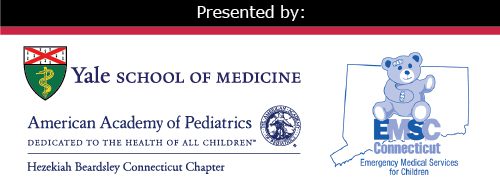PEM (Pediatric Emergency Medicine) ECHO® - Nursing
![Screenshot2018-11-2012_00_37[1] Screenshot2018-11-2012_00_37[1]](https://ct-aap.org/wp-content/uploads/2020/03/Screenshot202018-11-202012_00_371.png)
PEM-RN ECHO® Series Recorded Sessions and Handouts:
Session 1: Introduction to PEM-RN ECHO
January 28, 2021
Speakers: Michael Goldman, Megan Petrucelli, Victoria Barnes
Session 2: Pediatric Triage
February 17, 2021
Speakers: Donna Gardner, Holly Duggan, ChristIn Haughton and Emily Kipness
View Recorded Session
Download Presentation
Session Evaluation
HANDOUTS
CCMC Nursing Triage Protocol
iSpy Card
Session 3: Pediatric Nursing Procedures: Tips and Tricks
March 17, 2021
Speakers: Lori Generali, Kimberly Helm, ChristIn Haughton and Emily Kipness
View Recorded Session
Download Presentation
Session Evaluation
HANDOUTS
Coping Techniques
Comfort Positioning
Session 4: Child Physical Abuse
April 21, 2021
Speaker: Gunjan Tiyyagura
View Recorded Session
Download Presentation
Session Evaluation
HANDOUTS
CAN Evaluation Card
Session 5: Pediatric Readiness Carts
May 19, 2021
Speakers: Bill Lynders, Jen Arborio, Ashley O'Bryan, Michael Goldman, ChristIn Haughton
View Recorded Session
Download Presentation
Session Evaluation
Session 6: Pediatric Pain Assessment and ECHO Series Wrap-up
June 16, 2021
Speakers: Daniel Tsze, Michael Goldman, Megan Petrucelli
View Recorded Session
Download Presentation
Session Evaluation
PEM (Pediatric Emergency Medicine) ECHO® Series
Accreditation Statement
Disclosures of Conflict of Interest

Project ECHO® links expert specialist teams at an academic hub with clinicians in local communities. Our aim is to provide Pediatric Emergency Medicine education that is relevant to ED providers (MDs, APPS and RNs) in the community setting and provide a venue to both discuss cases that are challenging for providers as well as create relationships among ED providers in CT such that informal consultations can occur in the future.
![]()
